Monday, 1 November 2010
Pride and Prejudice
September provided 3 distinct opportunities to reflect on the concept of pride: not the personal pride that is among the 7 deadly sins. Rather I mean the collective pride that comes from identity; a group knowing who they are and presenting that publicly.
I started the month with a visit to the UK – timed not to coincide with the Papal visit but rather for the Bat Mitzvah of the charming Charlotte, middle daughter of 2 of my oldest and dearest friends, Mel and Rob. I arrived at the very grand Liberal Jewish Synagogue in St John’s Wood (‘Catholics go to Lourdes, Jews go to Lords’) dressed in a highly embroidered Indian wedding coat and with my head covered not with a Jewish skull cap but a Muslim prayer hat (made for me by one of my Islamic neighbours in Uganda). Thus, given the regrettable need for tight security in London synagogues, the doorman gave me a very suspicious glare. However, this was soon resolved when Charlotte’s grandmother called across and said to him: “Don’t worry – he’s one of the family!”
And that is indeed how I felt: back with my Jewish family and joining with them in this eventful rite of passage. It was an immense joy to watch Charlotte (like Eleanor 3 years before her) reciting her Torah portion, delivering a heartfelt homily about difference, and being blessed by the presence of her family. And the family was expansive enough not only to include a Catholic Christian but also friends and relatives from across a wide range of Jewish religious belief – from committed and observant relatives, through degrees of questioning agnostics, to hard-nosed atheists. Importantly, while this range might have made it harder for some to follow the ritual than others, it in no way seemed to diminish collective pride in the historical identity being celebrated.
I want to avoid the temptation of drawing a distinction between the ‘religious’ and the ‘cultural’: this is a construct beloved of softer liberal writers. They use it to justify (to whom?) their toleration of the public face of faith on the grounds that it is cultural but not religious. There is a legitimate distinction to be drawn – but it is between the creedal and the cultural. The same religious act can be done but for different motivations – do I abstain from pork because Moses said it was wrong or because my grandmother said it was wrong? do I receive Ashes at the beginning of Lent because I recognise myself as a sinner or because it reminds me of my childhood?
I would argue that religion is the act (that which publicly binds) and it can draw on one or both of those motivations. To affirm a commitment to the creedal statements or the cultural identity – but not to express these in any acts – seems too easy a commitment. To carry out the acts unconscious of one or other set of motivations is empty repetition.
In calling me ‘one of the family’, Charlotte’s grandmother might also have been pointing to a deeper truth: that as a Christian I am a junior member of a wider family that shares Abraham and Sarah as ancestors. One of the most extraordinary parts of anti-Semitism, practiced by so many Christians until very recently, was the complete failure to recognise, acknowledge and thank our Jewish forebears for a key part of our religious inheritance. When working with the Sudanese catechists in Rhino Camp I once asked them what religion Jesus was. ‘Catholic’ – they all replied. Having overcome disappointment of being told that he was not, they ventured with some hesitation ‘Protestant’ or ‘Muslim’ or no religion – and were relieved that those answers were also wrong. They were shocked – as so many Christians are – when they discovered that Jesus was born and died a Jew – and so did his mother!
The current Pope has continued his predecessor’s work in re-building bridges with the Jewish community, reaffirming that the First Covenant remains intact, visiting synagogues, and sharing prayers with Rabbis. He has, however, also been involved in actions – to do with Good Friday prayers and the acceptance of a Holocaust-denying rogue Bishop – that have damaged some of those bridges. Recently at our Institute we welcomed Rabbi David Rosen who has been a key partner with the Vatican on Jewish-Catholic relations. He was actually surprisingly forgiving of these incidents, seeing them as blips on the much stronger path to reconciliation.
Thankfully, when Benedict was in the UK – to coincide with my visit – there were no such blips. In fact, the highly effective Vatican diplomatic corps seemed to win over a British press that had been maniacally hostile to him before his arrival. They drew on an underlying prejudice that assumes that ‘taxpayers’ are ‘people like us’ and do not include Catholics (or Muslims or skateboarders). Thus their cry was: Why should the British taxpayer welcome an anti-woman, anti-gay, mediaeval theocrat who claims to be a Head of State? Strangely, the same accusations are not heard when the Dalai Lama comes to call – if only Benedict smiled more and wore saffron instead of white!
Though my former colleagues from CAFOD were heavily involved in the visit, I enjoyed being entirely peripheral. I did pop into the Hyde Park event to take the temperature. Though much less emotional than John Paul’s 1982 visit, and much more poorly attended, the public events did give Catholics an opportunity to be rightly proud of who we are, what contribution we make to wider society and what a diverse swathe of that society we represent. The tribal pride of being Irish, or hailing from a recusant family, has now become tied in with the truly Catholic pride of being universal. However, as Benedict climbed the platform (to the music of that great English composer, Handel), I feared that the choice of “And he shall reign for ever and ever” was taking us dangerously from a justified pride back to the triumphalism that for good reason provoked English anti-Catholic prejudice for many centuries.
By coincidence soon after returning to South Africa, there was another jamboree in a park also with strange music, also with men in dresses, also with rituals that baffled the outsider – another group of people proud that they could celebrate their identity in public after years of marginalisation. Africa’s largest and oldest gay pride event takes place just on the edge of the Jesuit parish in Johannesburg and I was personally proud that our (straight) parish priest published a trenchant defence of the event.
One young man from Malawi, attending his first ever Gay Pride, told how at home a friend had been imprisoned for 15 years for being gay and another was in fear of his life. Perhaps that is a human rights issue on which Peter Tatchell and Benedict XVI and the good Rabbi could all be united.
My belief is that pride in who one is is an entirely appropriate response to a God who has taken the trouble to make each one of us utterly unique: Jewish or Gentile, believer or secularist, straight or gay. To quote an esteemed Rabbi from the Bat Mitzvah prayers: “When I die and G*d asks me why I was not Moses, I will have a ready answer. But if G*d asks me why was I not myself, I will have no answer.”
Subscribe to:
Post Comments (Atom)


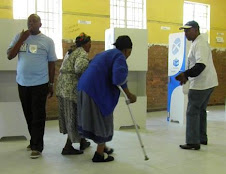











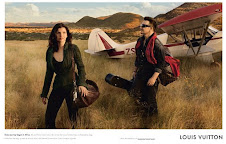

















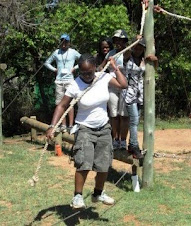
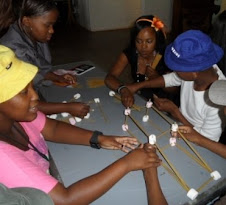














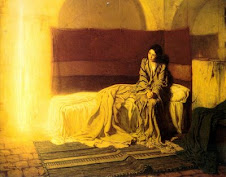













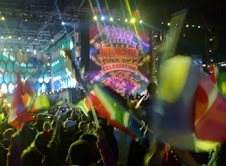













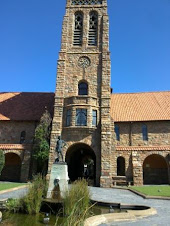











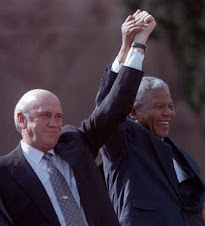.jpg)


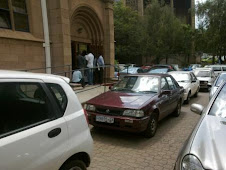





No comments:
Post a Comment
Note: only a member of this blog may post a comment.